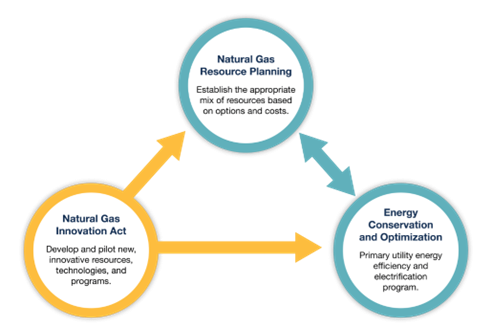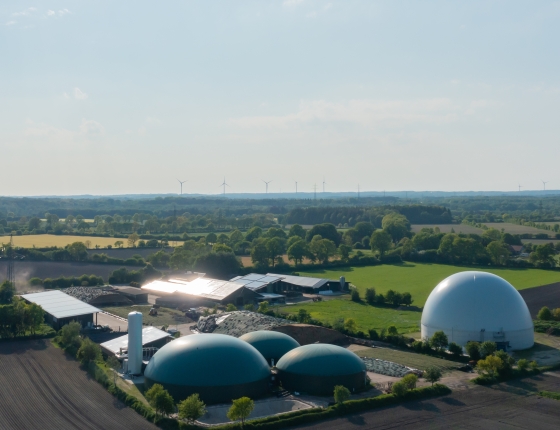Natural gas. Innovation. Decarbonization. What do these words have in common? It turns out, a groundbreaking Minnesota law and soon some exciting utility pilot programs, too.
Natural gas is a major energy source in Minnesota. We heat about two-thirds of our homes with natural gas and natural gas is a key energy source for many of our businesses, both large and small. Natural gas is also a major source of greenhouse gas emissions in our state. In fact, natural gas consumption and the resulting greenhouse gas emissions have increased by over 32 percent between 2005 and 2022 in Minnesota. In 2020, greenhouse gas emissions from natural gas end-uses in Minnesota surpassed greenhouse gas emissions from all electricity produced in the state.
To meet our state climate and emissions reduction goals, we need to find new ways to serve our natural gas end-use loads. We’ll need to do that without compromising on comfort, safety, and economic productivity. While we don’t yet have all the answers for how we’ll meet this challenge, we do have a path forward.
In 2021, the Minnesota Legislature passed the Natural Gas Innovation Act (NGIA). NGIA, for the first time, provides a clear regulatory opportunity for Minnesota’s natural gas utilities to invest in innovative technologies and fuels that reduce the greenhouse gas emissions of the natural gas system and end-uses. Under NGIA, natural gas utilities can submit five-year plans to the Minnesota Public Utilities Commission (Commission) to invest in pilot programs that test and develop innovative technologies and fuels, including biogas, renewable natural gas, power-to-hydrogen, power-to-ammonia, carbon capture, strategic electrification, district energy, and innovative energy efficiency technologies.
Since the enactment of NGIA, the Commission established a detailed regulatory framework for full fuel cycle greenhouse gas accounting and cost-benefit evaluation for NGIA plans. The Commission’s cost–benefit framework considers a holistic and expansive set of factors, including impacts on utility costs, the environment, environmental justice, local jobs and economic development, innovation, local markets, resource scalability, and other public benefits.
As the innovative fuels and technologies piloted through NGIA prove effective based on the Commission’s criteria and markets begin to take hold, those technologies and fuels will graduate into broader utility resources procured through the Energy Conservation and Optimization Act (ECO) or as part of overall gas utility resource plans. This process of testing, proving, then graduating resources into full-scale utility procurements is the path Minnesota’s lawmakers and our Commission have established to enable decarbonization of our natural gas system and end uses, while protecting ratepayers and ensuring robust and wide-reaching public benefits.

Natural Gas Resource Planning, NGIA, and ECO
In 2023, Minnesota’s two largest natural gas utilities, CenterPoint Energy and Xcel Energy, took the first steps along that path by filing their first NGIA plans. Both utilities proposed a diverse mix of pilot programs — including pilots focused on innovative energy efficiency, strategic electrification, geothermal technologies, and emerging carbon-free fuels — to test the different innovative resources and technologies included in NGIA. The Commission will hold a hearing on July 23 and July 25 to consider CenterPoint Energy’s NGIA plan. CEE will be at the hearing supporting NGIA pilot programs to advance innovative technologies, fuels, and strategies to modernize and decarbonize our gas system, while spurring local economic growth and job creation, and maintaining reliable, affordable, equitable service.
The Commission hearing will be streamed online here. CenterPoint Energy’s NGIA filing and stakeholders’ comments can be found in the Docket Number G009/M-23-215, while Xcel Energy’s filing is in Docket Number 23-518.
